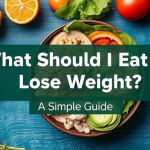As women age, their nutritional needs change, and the importance of taking the right supplements becomes more significant. Women over 50 often face new challenges related to hormonal changes, bone health, metabolism, and overall vitality. The right supplements can support these aspects of aging and help ensure that women maintain optimal health, energy, and quality of life.
While it is always best to get nutrients from a balanced, whole-food diet, supplements can provide valuable support when necessary. However, with so many supplements on the market, it can be overwhelming to determine which ones are truly beneficial. In this article, we will discuss the most important supplements for women over 50, focusing on those that promote bone health, heart health, hormonal balance, and general well-being.
1. Calcium
One of the most significant health concerns for women over 50 is maintaining bone health. As women age, estrogen levels decrease, which can lead to a decrease in bone density and an increased risk of osteoporosis. Calcium plays a crucial role in bone strength and structure. The Recommended Daily Allowance (RDA) for calcium for women over 50 is 1,200 mg per day.
While calcium can be obtained from dietary sources such as dairy products, leafy greens, and fortified foods, many women may find it challenging to meet their calcium needs through food alone. This is where calcium supplements can be beneficial. It’s important to note that calcium should be taken in moderation, as too much calcium can lead to kidney stones or interfere with the absorption of other minerals, like magnesium.
2. Vitamin D
Vitamin D is essential for calcium absorption and bone health. It also supports immune function and helps maintain muscle strength, which is important as women age. After the age of 50, the skin’s ability to produce vitamin D from sunlight decreases, making supplementation increasingly important.
The RDA for vitamin D for women over 50 is 600 IU (International Units) per day, increasing to 800 IU after the age of 70. However, some studies suggest that many older adults may benefit from higher doses to support bone health and immunity. Vitamin D deficiency can lead to weak bones, increased fall risk, and a weakened immune system. Therefore, a vitamin D supplement, combined with safe sun exposure, can help women maintain optimal health.
3. Magnesium
Magnesium is a crucial mineral that plays a role in over 300 enzymatic processes in the body. It supports muscle and nerve function, helps regulate blood sugar levels, promotes heart health, and contributes to bone density. Women over 50 are at an increased risk of magnesium deficiency, which can result in symptoms such as muscle cramps, fatigue, and mood disturbances.
The RDA for magnesium for women over 50 is 320 mg per day. While magnesium is found in foods like nuts, seeds, leafy greens, and whole grains, a supplement can help ensure adequate intake. Magnesium supplements may also promote relaxation and better sleep, which can be especially beneficial as women experience changes in sleep patterns due to menopause.
4. Omega-3 Fatty Acids
Omega-3 fatty acids, particularly EPA and DHA, are essential fats that support heart health, brain function, and inflammation management. As women age, their risk of cardiovascular diseases increases, and omega-3s can help reduce this risk by improving blood circulation, reducing triglycerides, and lowering blood pressure. Additionally, omega-3s have been shown to support cognitive function and mood regulation, which is vital for mental health.
The American Heart Association recommends that adults consume at least two servings of fatty fish per week to get enough omega-3s. However, if fish intake is insufficient or if you follow a vegetarian or vegan diet, an omega-3 supplement, such as fish oil or algae oil, can provide these essential fatty acids. A typical supplement dosage ranges from 500 to 1,000 mg per day.
5. Vitamin B12
Vitamin B12 is vital for nerve function, red blood cell production, and DNA synthesis. As women age, the body’s ability to absorb vitamin B12 from food decreases, and deficiency becomes more common. Symptoms of vitamin B12 deficiency include fatigue, weakness, memory problems, and mood changes. For women over 50, B12 supplementation is often necessary, especially for those following a vegetarian or vegan diet, as B12 is primarily found in animal products.
The RDA for vitamin B12 is 2.4 micrograms per day for women over 50. However, some experts recommend higher doses for those with absorption issues. Vitamin B12 is available in various forms, including sublingual tablets, capsules, and injections, so it’s easy to find a form that suits your needs.
6. Probiotics
Probiotics are beneficial bacteria that support gut health and digestion. As women age, their gut microbiota changes, which can lead to digestive issues such as constipation, bloating, and indigestion. Probiotics help maintain a healthy balance of gut bacteria, which can improve digestion, support the immune system, and even enhance mood.
While probiotics are found in fermented foods like yogurt, kefir, and sauerkraut, many women over 50 find that supplementing with probiotics is a convenient way to promote gut health. Look for supplements that contain a variety of probiotic strains, including Lactobacillus and Bifidobacterium, for optimal results.
7. Collagen
Collagen is the most abundant protein in the body, contributing to the structure of the skin, bones, muscles, and connective tissues. As women age, collagen production naturally decreases, leading to signs of aging such as wrinkles, sagging skin, and joint pain. Supplementing with collagen can help support skin elasticity, reduce wrinkles, and promote joint health.
Collagen peptides, which are broken-down forms of collagen that are easier for the body to absorb, are commonly available in powder or capsule form. Studies suggest that collagen supplementation may help improve skin hydration, elasticity, and reduce the appearance of wrinkles. Collagen also supports joint health, which is essential for women over 50 who may experience joint stiffness or pain due to aging.
8. Vitamin K2
Vitamin K2 is essential for bone health, as it helps regulate calcium in the body. It works synergistically with vitamin D to support bone mineralization, ensuring that calcium is deposited in the bones rather than in the arteries. Women over 50 are at higher risk of osteoporosis, and ensuring adequate vitamin K2 intake can help protect against bone fractures and improve bone density.
While vitamin K2 is found in fermented foods like natto (fermented soybeans) and certain cheeses, many women may benefit from supplementation, especially if they are not regularly consuming these foods. The recommended intake of vitamin K2 is not well-established, but doses ranging from 90 to 120 micrograms per day are commonly recommended for bone health.
9. Iron (If Needed)
Iron is necessary for the production of hemoglobin, which carries oxygen throughout the body. While iron deficiency is more common in premenopausal women due to menstruation, it can still occur in women over 50, particularly if they have a poor diet or certain health conditions. However, iron supplementation should only be considered if a deficiency is present, as excess iron can lead to toxicity and other health problems.
If you have been diagnosed with iron deficiency anemia, your doctor may recommend an iron supplement. The recommended daily intake of iron for women over 50 is 8 mg, but individual needs may vary depending on health conditions and dietary intake.
Conclusion
As women over 50 navigate the changes that come with aging, proper nutrition and supplementation can play a key role in maintaining overall health and well-being. While supplements should not replace a healthy diet, they can provide valuable support for bone health, heart health, hormonal balance, and energy levels.
Before beginning any new supplement regimen, it’s always a good idea to consult with a healthcare provider to determine your specific needs. With the right supplements, women over 50 can support their body’s natural aging process and enjoy a vibrant, healthy lifestyle.
As women age, their nutritional needs change, and the importance of taking the right supplements becomes more significant. Women over 50 often face new challenges related to hormonal changes, bone health, metabolism, and overall vitality. The right supplements can support these aspects of aging and help ensure that women maintain optimal health, energy, and quality of life.
While it is always best to get nutrients from a balanced, whole-food diet, supplements can provide valuable support when necessary. However, with so many supplements on the market, it can be overwhelming to determine which ones are truly beneficial. In this article, we will discuss the most important supplements for women over 50, focusing on those that promote bone health, heart health, hormonal balance, and general well-being.
1. Calcium
One of the most significant health concerns for women over 50 is maintaining bone health. As women age, estrogen levels decrease, which can lead to a decrease in bone density and an increased risk of osteoporosis. Calcium plays a crucial role in bone strength and structure. The Recommended Daily Allowance (RDA) for calcium for women over 50 is 1,200 mg per day.
While calcium can be obtained from dietary sources such as dairy products, leafy greens, and fortified foods, many women may find it challenging to meet their calcium needs through food alone. This is where calcium supplements can be beneficial. It’s important to note that calcium should be taken in moderation, as too much calcium can lead to kidney stones or interfere with the absorption of other minerals, like magnesium.
2. Vitamin D
Vitamin D is essential for calcium absorption and bone health. It also supports immune function and helps maintain muscle strength, which is important as women age. After the age of 50, the skin’s ability to produce vitamin D from sunlight decreases, making supplementation increasingly important.
The RDA for vitamin D for women over 50 is 600 IU (International Units) per day, increasing to 800 IU after the age of 70. However, some studies suggest that many older adults may benefit from higher doses to support bone health and immunity. Vitamin D deficiency can lead to weak bones, increased fall risk, and a weakened immune system. Therefore, a vitamin D supplement, combined with safe sun exposure, can help women maintain optimal health.
3. Magnesium
Magnesium is a crucial mineral that plays a role in over 300 enzymatic processes in the body. It supports muscle and nerve function, helps regulate blood sugar levels, promotes heart health, and contributes to bone density. Women over 50 are at an increased risk of magnesium deficiency, which can result in symptoms such as muscle cramps, fatigue, and mood disturbances.
The RDA for magnesium for women over 50 is 320 mg per day. While magnesium is found in foods like nuts, seeds, leafy greens, and whole grains, a supplement can help ensure adequate intake. Magnesium supplements may also promote relaxation and better sleep, which can be especially beneficial as women experience changes in sleep patterns due to menopause.
4. Omega-3 Fatty Acids
Omega-3 fatty acids, particularly EPA and DHA, are essential fats that support heart health, brain function, and inflammation management. As women age, their risk of cardiovascular diseases increases, and omega-3s can help reduce this risk by improving blood circulation, reducing triglycerides, and lowering blood pressure. Additionally, omega-3s have been shown to support cognitive function and mood regulation, which is vital for mental health.
The American Heart Association recommends that adults consume at least two servings of fatty fish per week to get enough omega-3s. However, if fish intake is insufficient or if you follow a vegetarian or vegan diet, an omega-3 supplement, such as fish oil or algae oil, can provide these essential fatty acids. A typical supplement dosage ranges from 500 to 1,000 mg per day.
5. Vitamin B12
Vitamin B12 is vital for nerve function, red blood cell production, and DNA synthesis. As women age, the body’s ability to absorb vitamin B12 from food decreases, and deficiency becomes more common. Symptoms of vitamin B12 deficiency include fatigue, weakness, memory problems, and mood changes. For women over 50, B12 supplementation is often necessary, especially for those following a vegetarian or vegan diet, as B12 is primarily found in animal products.
The RDA for vitamin B12 is 2.4 micrograms per day for women over 50. However, some experts recommend higher doses for those with absorption issues. Vitamin B12 is available in various forms, including sublingual tablets, capsules, and injections, so it’s easy to find a form that suits your needs.
6. Probiotics
Probiotics are beneficial bacteria that support gut health and digestion. As women age, their gut microbiota changes, which can lead to digestive issues such as constipation, bloating, and indigestion. Probiotics help maintain a healthy balance of gut bacteria, which can improve digestion, support the immune system, and even enhance mood.
While probiotics are found in fermented foods like yogurt, kefir, and sauerkraut, many women over 50 find that supplementing with probiotics is a convenient way to promote gut health. Look for supplements that contain a variety of probiotic strains, including Lactobacillus and Bifidobacterium, for optimal results.
7. Collagen
Collagen is the most abundant protein in the body, contributing to the structure of the skin, bones, muscles, and connective tissues. As women age, collagen production naturally decreases, leading to signs of aging such as wrinkles, sagging skin, and joint pain. Supplementing with collagen can help support skin elasticity, reduce wrinkles, and promote joint health.
Collagen peptides, which are broken-down forms of collagen that are easier for the body to absorb, are commonly available in powder or capsule form. Studies suggest that collagen supplementation may help improve skin hydration, elasticity, and reduce the appearance of wrinkles. Collagen also supports joint health, which is essential for women over 50 who may experience joint stiffness or pain due to aging.
8. Vitamin K2
Vitamin K2 is essential for bone health, as it helps regulate calcium in the body. It works synergistically with vitamin D to support bone mineralization, ensuring that calcium is deposited in the bones rather than in the arteries. Women over 50 are at higher risk of osteoporosis, and ensuring adequate vitamin K2 intake can help protect against bone fractures and improve bone density.
While vitamin K2 is found in fermented foods like natto (fermented soybeans) and certain cheeses, many women may benefit from supplementation, especially if they are not regularly consuming these foods. The recommended intake of vitamin K2 is not well-established, but doses ranging from 90 to 120 micrograms per day are commonly recommended for bone health.
9. Iron (If Needed)
Iron is necessary for the production of hemoglobin, which carries oxygen throughout the body. While iron deficiency is more common in premenopausal women due to menstruation, it can still occur in women over 50, particularly if they have a poor diet or certain health conditions. However, iron supplementation should only be considered if a deficiency is present, as excess iron can lead to toxicity and other health problems.
If you have been diagnosed with iron deficiency anemia, your doctor may recommend an iron supplement. The recommended daily intake of iron for women over 50 is 8 mg, but individual needs may vary depending on health conditions and dietary intake.
Conclusion
As women over 50 navigate the changes that come with aging, proper nutrition and supplementation can play a key role in maintaining overall health and well-being. While supplements should not replace a healthy diet, they can provide valuable support for bone health, heart health, hormonal balance, and energy levels.
Before beginning any new supplement regimen, it’s always a good idea to consult with a healthcare provider to determine your specific needs. With the right supplements, women over 50 can support their body’s natural aging process and enjoy a vibrant, healthy lifestyle.






Leave a Reply